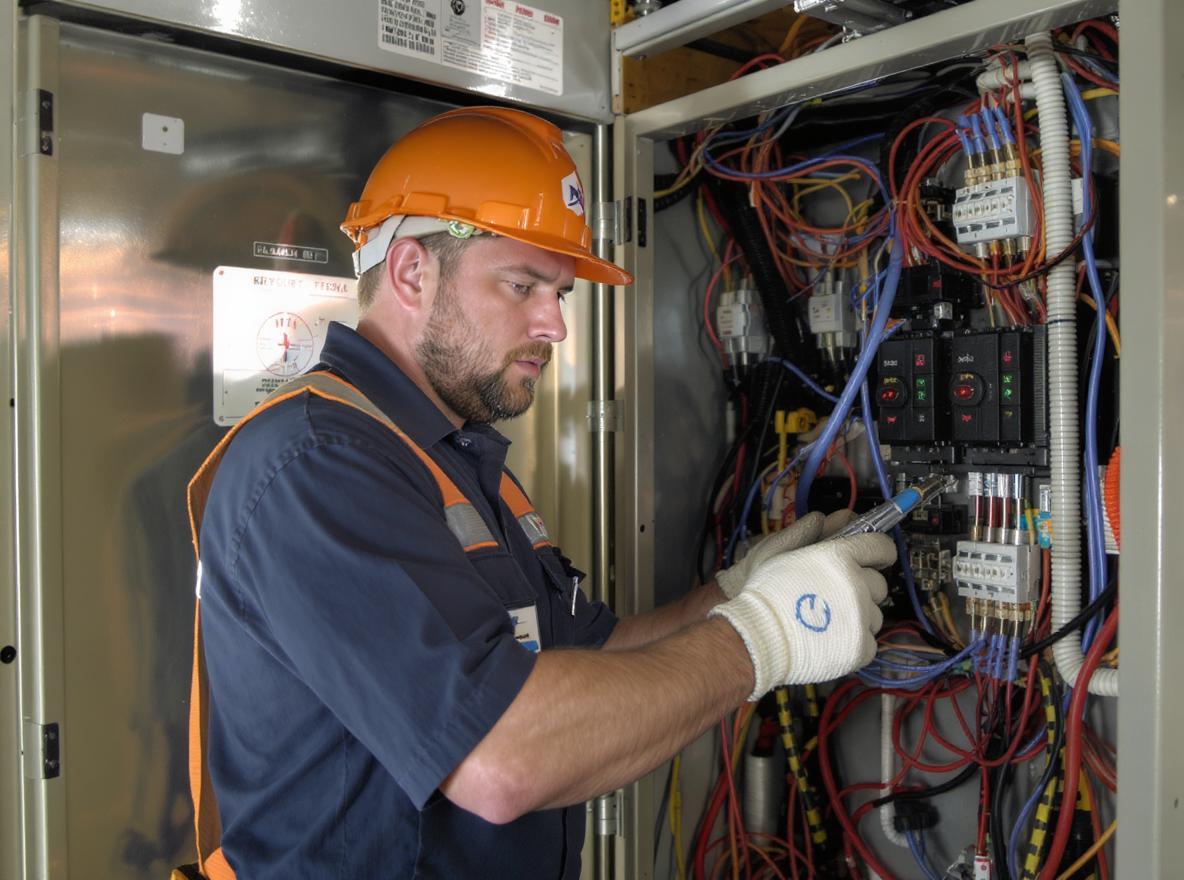Are you an electrician looking to boost your income and advance your career in the United States? The most lucrative jobs for electricians are not just rewarding in terms of pay, but they also offer long-term career growth across various industries. Let's delve deeper into these high-paying opportunities.

Master Electrician
A Master Electrician is not only one of the highest-paying roles in the electrical field but also one of the most respected. Master Electricians are experts who have significant experience and a profound understanding of both basic and complex electrical systems. They have the authority to supervise other electricians, design projects, and ensure that all work meets safety standards and regulations.
According to BuildForce, the compensation for Master Electricians is expected to increase substantially by 2025, reflecting the demand for their specialized skills. These professionals are responsible for the final validation of electrical installations and maintenance, making their role critical in construction projects and commercial settings.
To become a Master Electrician, an individual typically needs several years of apprenticeship and must pass a licensing exam, which varies by state. This certification opens doors to salaries that can exceed $100,000 annually, especially for those involved in large-scale industrial projects or who run their own electrical contracting business.
Electrical Project Manager
The role of an Electrical Project Manager combines technical electrical knowledge with project management skills. These professionals are tasked with overseeing electrical projects from inception to completion, ensuring that they are completed on time, within budget, and to the required quality standards.
Electrical Project Managers are in high demand due to their ability to seamlessly integrate technical know-how with leadership capabilities. They are employed across a variety of sectors, including construction, manufacturing, and utilities companies. Their responsibilities include planning project phases, coordinating with other departments, ensuring compliance with regulations, and managing the project budget.
Salaries for Electrical Project Managers are among the highest in the field, reflecting the level of responsibility and expertise required. Often, these professionals hold a bachelor’s degree in electrical engineering or another related field and have substantial experience managing electrical projects.
Industrial Electrician
An Industrial Electrician specializes in large-scale electrical systems found in manufacturing facilities, power plants, and other industrial environments. These professionals are essential for maintaining, troubleshooting, and repairing complex electrical equipment used in production.
Typically, Industrial Electricians work with high-voltage systems and sophisticated electrical machinery, necessitating advanced technical skills and comprehensive safety training. The heightened level of risk and responsibility associated with these roles translates to bigger paychecks.
According to FieldEdge, becoming an Industrial Electrician requires rigorous training and certification, often beginning with an apprenticeship program. In terms of compensation, Industrial Electricians often earn high wages, particularly in regions with a significant industrial presence.
How to Qualify for These High-Paying Jobs
To unlock the potential of high-paying electrical roles, electricians must pursue the necessary education, gain relevant experience, and achieve appropriate certifications. Here's how aspiring electricians can set themselves on the path to these lucrative careers:
- Education and Apprenticeship: Beginning your journey involves completing an electrician training program, which provides foundational knowledge and hands-on experience. Most electricians join apprenticeship programs, lasting 4 to 5 years, which combine classroom instruction with on-the-job training.
- Certification and Licensing: Achieving certification or licensing is crucial for advancement. Licensing requirements differ by state, but passing a journeyman’s exam is a common step. Advanced roles like Master Electrician require additional certifications and significant experience.
- Specialization: Consider specializing in a particular field, such as industrial or commercial electrical work. Specializing can lead to roles that require deeper expertise and, consequently, higher pay.
- Continual Learning: The electrical field is constantly evolving with new technologies and standards. Continuous education through courses and workshops helps electricians stay current and competitive.
The electrical sector offers a multitude of opportunities for professionals seeking high-paying roles. By advancing their skills and pursuing specialized career paths, electricians can significantly increase their income and enjoy a fulfilling career in one of the most essential trades in the modern economy. To learn more about the different types of electrician careers, check out resources like Indeed and ServiceTitan, which provide detailed insights into various electrician roles.




